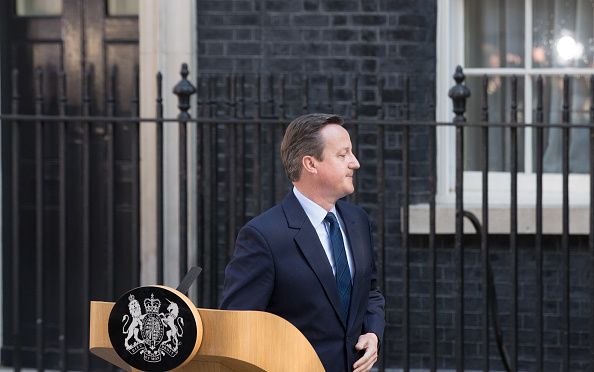What do Boris Johnson and Donald Trump have in common?
Ridiculous hair. Yes. Ridiculous political philosophies. Yes. An unrivalled ability to fearmonger. Yes. The two men have many similarities, and both vociferously encouraged the British public to leave the EU. (Interestingly, Trump didn’t actually know what Brexit stood for until the abbreviation was explained to him two weeks ago). The scaremongering has worked, with the leave campaign securing 52 percent of the vote. In the end, unfortunately, resentment and hatred came out on top. Distrust of EU immigrants, especially from poorer, economically ravenous countries like Poland and Hungary, fueled the support for Brexit.
On Thursday, Britain told the EU, “it’s not you, it’s me. Actually, screw that, it is you, it’s all you, it’s always been you.” But this won’t be an instant departure, it’s going to be slow, it’s going to be painful. Brexit is a messy divorce that will last for about two-years. The negotiating will be relentless, the pain will be real; there will be tears, there will be anger, and there will be a lot of finger pointing. Kids will cry. Mom will shout. Dad will shout obscenities. Serious questions need to be asked. Will Adele release a Brexit break-up song? Only time will tell.
The divorce has already claimed its first victim.
Addressing the nation in a sobering speech outside 10 Downing Street, Prime Minister David Cameron announced his resignation. After this unexpected referendum result, it quickly became obvious that his position was untenable. Humiliated and clearly confused, Cameron had no option but to surrender to the pro-Brexit politicians. With the support of Tory backbenchers, Nigel Farage and his posse were always going to overthrow the once-mighty Cameron. Another victim of the divorce is George Osborne, the Chancellor of the Exchequer, whose personal and political career rested solely on Britain voting to remain in the EU. Acting as Britain’s Treasury Secretary, Osborne, up until the recent referendum result, was considered the Robin to Cameron’s Batman.
Amidst a sea of possibilities, probabilities, and sheer speculation, the British economy will experience a period of turbulence. One thing is for sure, though, Brexit will dramatically affect the British economy, immigration policy, and the role of the UK in global affairs. The British can adopt one of two strategies. First option is to take a similar stance to Norway. Although the Nordic nation is not a member of the EU, it adheres to a number of EU rules, and in exchange it has easy access to the European Common Market. The second option is a far more dramatic one, and would see the UK attempt to turn the old adage that “no man is an island” firmly on its head.
As foreign investors try and determine what Brexit actually means, short-term, direct investment in the UK will slow to its lowest rate in decades. Naturally, this lack of foreign investment will cause the value of the pound to fall, which could prompt yet another recession. The severity and duration of such a recession remains unknown, but the ways in which the UK government and the Bank of England react will play a major role in determining the magnitude of this economic earthquake.
It appears, according to expeditious reports, that the UK’s relationship with the EU, its largest trading partner, will reach volatile levels.
On Friday morning, as the aftershocks of the referendum were still being felt, the British stock market and the pound fell to their lowest rates in years, which, in turn, fueled talks of suspending stock market trading. Now, after Cameron conceding defeat, Britain’s prospects of negotiating future deals with the EU look bleak, and this stark reality could devastate businesses across Europe.
One of the most attractive features offered by EU membership is the principle of free trade among member states. Leaving the EU strips you of this privilege. Take a major car producer like Hyundai, for example. The multinational conglomerate headquartered in Seoul, South Korea also operates out of the UK. Hyundai’s UK operations, largely because of Britain’s EU membership, allowed easy access to the European market. However, with the UK opting to leave, Hyundai will face major difficulties selling into other European markets. Why? Because a new set of safety certifications for non EU countries must now be met, and these headaches will be experienced by almost every major international industry operating out of the UK, from Nissan to Nestle.
What about the 1.2 million Brits living in other EU countries, and the 3 million non-British EU nationals living in Britain? Thanks to EU membership, they were able to traverse the English Channel with minimum fuss. Britain’s exit from the EU profoundly changes their fate. Yes, it’s possible that Britain will negotiate a new treaty with
the EU, and this agreement could allow the continuation of free movement between the UK and EU nations. But, let’s be honest, Britain obviously enjoys shooting itself in the foot, and logic tells us that very little logic will enter this economic quagmire for some time to come.
Main Photo:








103 Responses
David Cameron has his own point of view just like the others.